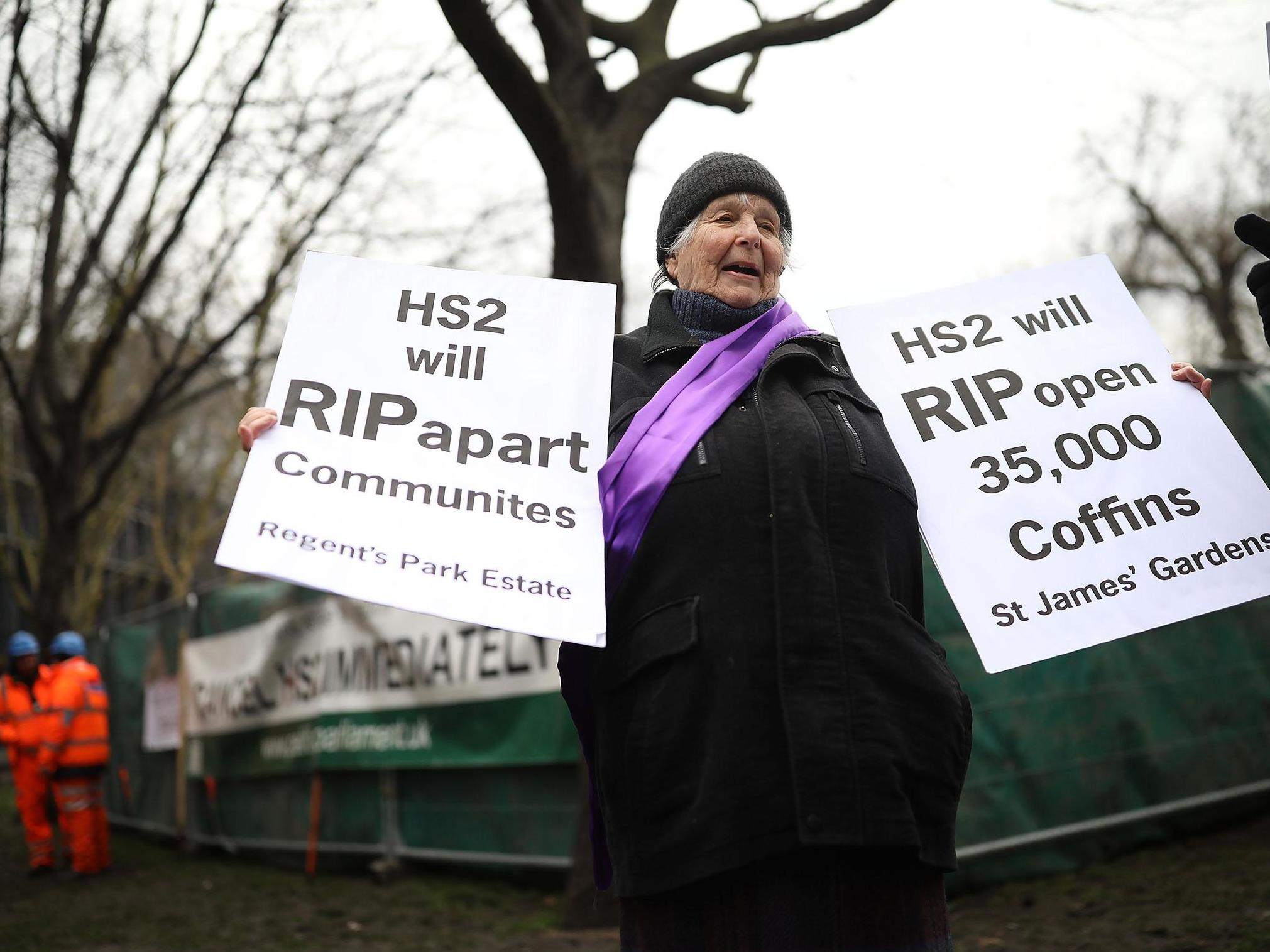HS2 should go ahead – but we can afford to be even more ambitious
Boris Johnson is right to review the controversial and expensive high-speed rail project – but one idea is not enough to ensure our transport system becomes carbon neutral

The Independent has long been sceptical about a new high-speed railway line adding to the hub-and-spoke network based around London. It risks further adding to the capital’s gravitational pull on the UK economy, and any environmental and economic efficiency benefits will be purchased at a high price.
So we cannot object to Boris Johnson’s decision to review the project, and we welcome the speed with which it will be carried out, reporting in the autumn. But, unless the review discovers important new reasons to the contrary, the project should go ahead.
The new line will add significantly to the capacity of the rail network, and particularly to its north-south trunks. This will benefit the English midlands and the north; it will have spillover benefits in improving local services; and it will reduce the economic costs of a zero-carbon transport system.
What is more, the decision in principle has already been taken to go ahead; a great deal of money has already been spent; and many lives along the planned route have already been changed. Obviously, if the scheme were a terrible idea it would be an example of the “sunk cost fallacy” to go ahead just because money has been spent; but because it does have clear benefits that argument does not apply.
One of our main objections to the project, however, was its opportunity cost. We felt there were better and cheaper ways of achieving similar objectives, and our fear was that the scale and expense of HS2 would crowd out smaller initiatives.
That was why we welcomed the prime minister’s early visit to Manchester, to announce – or, strictly, to reannounce – plans to upgrade the rail link to Leeds. Assuming that HS2 goes ahead, it should not be at the expense of investment in rail infrastructure, not just in northern England, but in Wales, Cornwall, Scotland and Northern Ireland.
And it should not be at the expense of greening the rest of our transport infrastructure. Simply increasing the capacity of the rail network is unlikely to reduce carbon emissions overall, because any traffic diverted from roads and air to rail would just be replaced by new traffic as roads and air routes fill up again. The big gains in moving towards zero-carbon transport will come from replacing petrol and diesel engines with electric power from renewable sources.
It is fortunate, therefore, that we remain in a historically unusual period of low interest rates, in which it makes sense for the government to borrow for capital investment.
As the Institute for Fiscal Studies suggested last week, the new chancellor, Sajid Javid, could take advantage of “extremely low interest rates” and begin “borrowing more to pay for more infrastructure”.
HS2 should go ahead, but so too should ambitious programmes to improve rail services away from London, and to push towards a zero-carbon transport system for the whole of the country.
Join our commenting forum
Join thought-provoking conversations, follow other Independent readers and see their replies
Comments